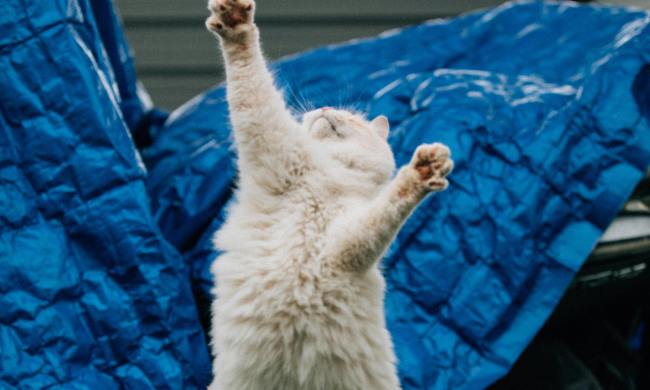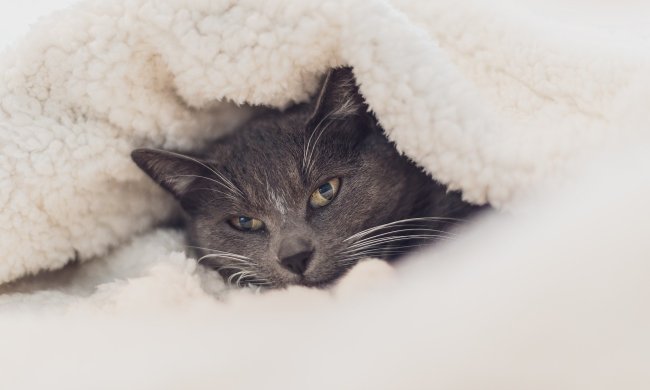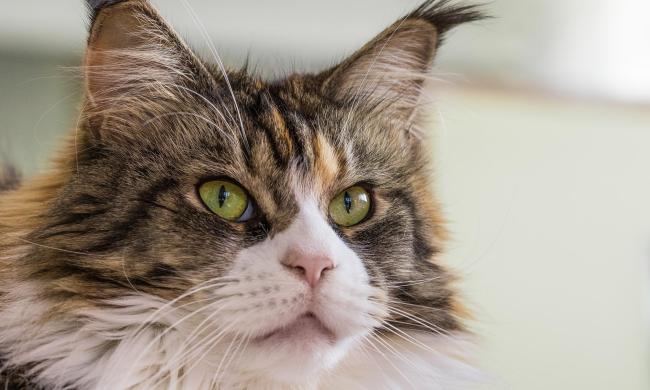You naturally want your cat to only eat the very best, and that includes his treats. Some treats are full of preservatives and chemicals, and those aren’t elements that you want to put in your cat’s body. Organic cat treats provide a healthy yet tasty alternative. Made with clean ingredients and without added chemicals, these treats are designed with your cat’s health and nutrition in mind. They’re available at a variety of retailers and come in many different flavors, so even if you have a picky kitty, you should be able to find some treats that appeal to him.
Whole Life Pet Organic USA Freeze Dried Organic Chicken Treats for Cats
Made with certified organic chicken, these freeze-dried cubes are perfect for cats who have food allergies, stomach sensitivities, or a little extra weight. The treats are sourced from free-range chicken raised without antibiotics or growth hormones, so the meat is human grade and non-GMO. The chicken is sliced, steamed, and freeze dried to lock in the nutrients and tasty flavor. The intense aroma entices even picky pets, and this high-protein snack can be fed alone or used as a meal topper. The bag is vacuum sealed to keep the treats fresh.
Snack 21 Treats Salmon Snacks Cat Treats
These tasty treats are made from wild Pacific salmon in Canada and are free of any additives or preservatives. The treats are high in protein and full of omega-3 fatty acids to promote a shiny coat and healthy skin. They’re air dried and sealed to preserve their delicious flavor, making them a healthy snack for your cat.
Castor & Pollux Organix Chicken Flavor Organic Cat Treats
These all-natural treats contain 95 percent organic ingredients; organic free-range chicken is the first ingredient. The treats have just one calorie each, so they’re perfect for rewarding good behavior or for cats who need to watch their weight. All of the ingredients are produced without using chemical pesticides, added growth hormones or antibiotics, synthetic fertilizers, or artificial preservatives. They’re made in the USA and feature a fun drumstick shape that’s tasty and crunchy. These treats are free of corn, wheat, and soy, so they’re ideal for cats who have dietary restrictions.
Yeowww! Organic Catnip
With this organic catnip, you can give your cat a special treat that’s extra-effective. This high-quality catnip includes only leaves and flower tops, so it’s fresh and has a fabulous aroma. There aren’t any chemicals or pesticides used during the catnip’s cultivation, so it’s a safe choice for your cat. You can add a little to your cat’s food to entice him to eat, or you can sprinkle it on toys and scratchers. The catnip comes in a tub to keep it extra fresh.
From the Field All Natural Organic Catnip
This organic, all-natural catnip is grown in Washington. The high elevation and dry climate help to ensure the catnip is extra potent, and the catnip plants themselves are grown outdoors. The catnip is a mixture of just the leaves and flowers, so it’s extra enticing for your cat. One 2-ounce tub features plenty of catnip, so you can feed it every day or use it for your multi-cat household.
When you’re choosing treats for your cat, be sure to keep in mind any dietary sensitivities that your cat may have. If your cat is on a limited-ingredient diet, it’s important to avoid feeding treats that contain the ingredients you’re looking to eliminate.
These organic treats are tasty and appealing to cats, but remember that they’re designed to be fed as treats. If your cat isn’t used to them, feed just a little bit at a time so his digestive system has time to adjust. You’ll want to avoid feeding your cat so many treats that he starts to eat less of his food. His cat food is designed to provide a nutritionally balanced diet, and if he’s eating more treats than food, that balance will be thrown off. If your cat is a picky eater, you can break some treats up and mix them into his food to help entice him to clean up his meals, and maybe offer one or two as a special after-dinner treat. After all, even kitties love their desserts!


